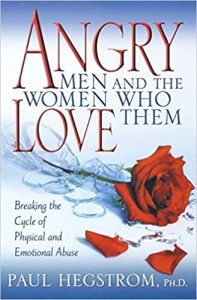Greetings! I would like to receive some godly insight as to the job description of a deacon.
I have heard from the pulpit of my church that a deacon has the duties of counseling others within the church, as well as teaching. Is this biblical? Please give scriptures. The preacher stated the deacon is ordained but the Bible says that a deacon is appointed. The preacher stated that a deacon can counsel people, making reference to Jethro appointing men to help with counsel to free up Moses… These men, were’t they elders and not deacons?
Thanks for your question! The term “deacon” comes from the Greek term diakonos, and simply means “minister” or “servant”. It is used often in the New Testament in the general sense of one who serves. However, in a few passages it is used to refer to those occupying a particular position of service in the early church (see Phil. 1:1 and 1 Tim. 3:8-13).
The qualifications for serving as a deacon in the church are spelled out in 1 Tim. 3:8-13. Neither counseling nor teaching are specifically mentioned as duties of deacons, nor is the ability to do so stated as a requirement for becoming a deacon. While an elder must be able to teach (1 Tim. 3:2), this requirement is not specified of deacons. Nevertheless, since deacons were to hold “to the mystery of the faith with a clear conscience”, it seems that a certain amount of biblical and theological knowledge may have been required to serve as a deacon. This may indicate that, if necessary, a deacon should be both intellectually and spiritually prepared to minister in such a capacity. However, this is not explicitly stated.
Some believe that the office of deacon originated in Jerusalem by order of the Apostles (Acts 6). Although the Greek term diakonos is not used of the Seven in this passage, they do seem to have performed at least some of the duties typically associated with the office of a deacon (e.g. the distribution of food in vv. 1-3). If the office of deacon originated in Acts 6, there may be some basis for official ordination to this office in v. 6. The dictionary on my desk defines ordain, at least in part, in this manner: “officially appoint or consecrate as a minister in a Christian church”. Thus, depending on how one defines the terms “ordain” and “appoint”, they could be used somewhat interchangeably.
Also worth noting, if Acts 6 does refer to the appointment of the first deacons, there were two who had ministries which were much more extensive than may have been required of deacons. Stephen was quite a teacher, preacher and debater (Acts 6:9-10 and Acts 7), while Philip was quite an evangelist (Acts 8:4-5, etc.). While such gifts may not have been required to serve as a deacon, it seems clear that one who possessed gifts of teaching, evangelism, counseling, etc. could serve as a deacon. Since the requirements to serve as a deacon were primarily moral in nature, anyone meeting these requirements could serve as a deacon, whatever their spiritual gifts might have been.
As for the account of Jethro counseling Moses in Exodus 18, my own view would be as follows: First, while Jethro did counsel Moses (v. 19) to appoint judges to assist him in handling disputes between the people (vv. 21-26), he is actually described as a “priest” (v. 1) and not a deacon. Second, in my opinion, the Church (including its offices of elder and deacon) did not formally begin until the Day of Pentecost as described in Acts 2. While the men appointed by Moses to help judge the Israelites may have had moral qualifications similar to those required of both elders and deacons in the New Testament, nevertheless, strictly speaking I do not think that they should be understood as such in the context of Exodus 18. It makes sense that there should be similar moral qualifications required of those who would lead God’s people, but I do not think we should view the “judges” in Exodus 18 as “elders” or “deacons” in the New Testament sense. The former were leaders of Israel; the latter are leaders of the Church. There are certainly similarities between the two, but there are differences as well.
In summary, let me briefly answer your questions this way: First, while a deacon may be competent both to counsel and to teach, neither are specifically required of deacons in the New Testament. Second, there could be evidence for the ordination (or appointment) of deacons to their official task in Acts 6:6. Finally, while the example of Jethro, Moses, and the appointment of judges in Exodus 18 certainly offers some important principles for understanding the necessity of appointing spiritually and morally qualified leaders to assist in the effective ministry of the Church, nevertheless, I personally do not think we should equate the ministry of these “judges” of Israel with that of elders and deacons in the local church. Strictly speaking, if the church began on the Day of Pentecost in Acts 2, I think we should primarily glean our understanding of the qualifications and requirements for serving as elders and deacons in the local church from those New Testament passages which specifically address this issue (e.g. 1 Tim. 3:1-13; Tit. 1:5-9; Acts 6; etc.).
Hope this helps. God bless you!
Michael Gleghorn
Probe Ministries







